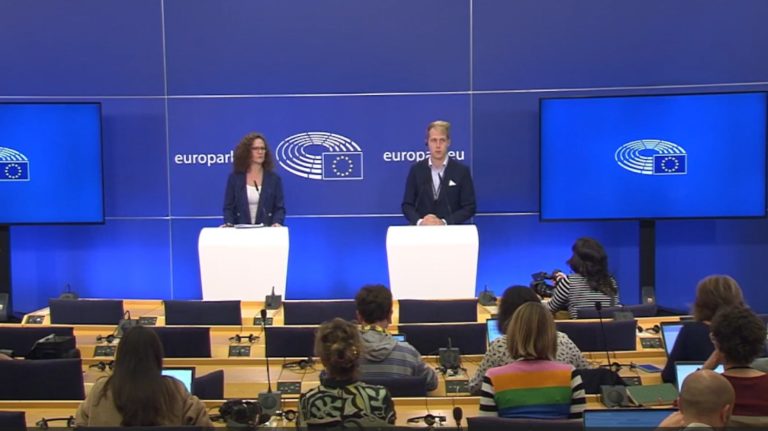
The report validates Citizen Lab’s investigation on Catalangate and calls for strong measures from the European Commission. The Catalan National Assembly asks the Catalan Parliament to create an independent international commission and that the political parties stop all collaboration with the Spanish government.
The Inquiry Committee on Pegasus at the European Parliament has published a draft report that is highly critical with Spain and states that all evidence points resposibility for the Catalangate affair at the Spanish authorities as, especially in connection with the 2017 independence referendum in Catalonia and the events that followed. The report confirms 65 attacks on Catalan pro-independence leaders, of which the Spanish state only confirmed 18, as authorised by the Supreme Court.
In a press conference held yesterday in Brussels, Dutch MEP and inquiry committee Rapporteur, Sophie In‘t Veld, criticised the Spanish authorities for not giving enough information. “There are strong indications that politicians and others have been monitored, spied upon, with no evident, imminent, immediate threat to national security,” she affirmed. This constitutes a violation of article 18 of the Spanish constitution that protects the right to privacy.
According to the committee’s preliminary report, in “at least four member states of the union” —among which the Spanish state—“spyware has been used illegitimately”, and that “the analysis of the attacks shows a clear pattern”, as most of the Catalangate attacks coincide with and relate to moments of political relevance in Catalonia. However, without clear cooperation from the Spanish authorities, the inquiry committee does not have much information on what the Rapporteur acknowledges to be a “very delicate” affair. “We warmly invite Spanish authorities to provide us with more information so we can assess the situation”, said In’t Veld.
Furthermore, the report states that “the European Council and the state governments are practicing omertà”, pressuring for illegal espionage to be considered “exclusively a national topic”. This espionage constitutes a “system designed purposefully to serve as a tool for political power and control” in which “Complainants are refused access to information, even regarding the charges against them that supposedly justified their surveillance. Prosecutors, magistrates and police refuse to investigate and often put the burden of proof on the victims, expecting them to prove they have been targeted with spyware. This leaves the victims in a Catch-22 situation, as they are denied access to information”.
The report also highlights that “’National security’ is frequently invoked as a pretext for eliminating transparency and accountability” and even states that “All these elements combined form a system designed for control and oppression”. Among the report’s recommendations, a request that a European Litigation Fund be created to finance litigation for victims of espionage, and that the European Council conduct its own investigation and an extraordinary summit on this issue, stands out.
The Dutch MEP showed considerable criticism towards the European Union and denounced its double standards. “When the attacks on democracy come from within, the Commission is silent. When the threat to democracy is not some far-away stranger but the governments in EU member states, the Commission suddenly considers that the defence of European democracy is no longer a European matter”.
In this sense, she affirmed that the Pegasus Inquiry Committee is strongly politicised. “You can on occasion feel the presence of the national governments in our debates” she stated. This political interference seems to be the reason why the committee has yet to visit Spain, although it is the European country where the espionage has been used to the largest extent.
Only some weeks ago, Czech MEP and member of the Pegasus Committee, Marcel Kolaja denounced in an interview that the main political groups were pressuring to avoid the mission to go to Spain. This is deeply worrying, but the Pegasus Inquiry Committee will continue working for some more months, and Sophie In‘t Veld expressed her hope that they will end up visiting Spain.
The president of Catalan National Assembly, Dolors Feliu, recalls that “The organisation has been affected by the indiscriminate Catalangate espionage. Two former presidents, Elisenda Paluzie and Jordi Sànchez, as well as other members of the organisation have been victims of attacks, only because of their commitment to Catalonia’s independence”.
As Rapporteur Sophie In‘t Veld said: “In times of crisis we need reliable, responsible and accountable governments. The abuse of spyware does not just violate the right to privacy of individuals, it undermines democracy and democratic institutions”. Targeting a peaceful and democratic social movement is an abuse of fundamental rights, and it’s time for the Spanish authorities to be held accountable.